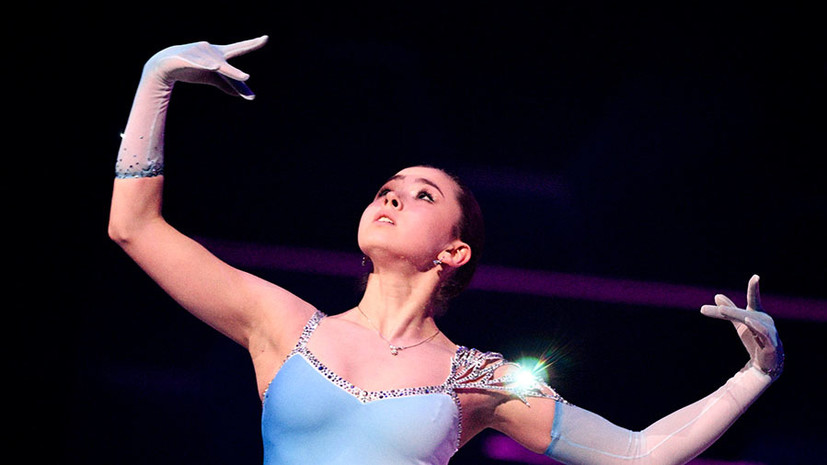This week, the doping case of Kamila Valieva again appeared in the field of view of the world sports community.
The reason for this was the doubt about the objectivity of the investigation process, expressed by the head of the US National Olympic Committee, Sarah Hirshland.
She hinted that political pressure could be exerted on the Russian anti-doping services.
In turn, RUSADA stressed that they follow all the requirements of WADA, and any comments on this case violate the rights of the athlete.
Recall that the doping test Valieva, handed over during the December championship of Russia, gave a positive result for trimetazidine.
Information about this was received by RUSADA on February 8, during the Olympics in Beijing, and a temporary suspension was immediately imposed on the athlete.
However, Valieva successfully challenged this decision and was admitted to the Games.
The International Olympic Committee appealed to CAS with a protest, but sports arbitration also remained on the side of the young figure skater.
Valieva performed in a personal tournament, where she took fourth place.
However, the case is not closed, and the investigation on the merits continues.
On April 26, during the solemn reception of Beijing Olympic champions in the Kremlin, Russian President Vladimir Putin noted the skill of Valieva and expressed the opinion that "such perfection cannot be achieved dishonestly, with the help of some additional means, manipulation."
“Yes, in figure skating all these additional funds are not needed, we understand and know this very well,” the head of state said.
It seems that this statement caused indignation of the head of the US NOC.
“You see news reports of Putin defending Valieva and wondering, ‘If he comes to her defense before the investigation is over, how can this process be considered fair?
— quotes Hirshland The Washington Post.
RUSADA, responding to Hirshland's comment, emphasized that in its work the agency clearly follows the provisions of regulatory documents, namely the requirements of the World Anti-Doping Code and international standards.
It was also noted that a thorough investigation would take time.
“We are conducting an investigation to identify all the circumstances of a possible anti-doping rule violation in the interests of a protected person, identify the persons involved in this violation (or exclude possible involvement), and also collect additional materials and evidence relevant to this case,” RIA quotes News from RUSADA General Director Veronika Loginova.
“I would like to once again draw attention to the fact that the athlete is a protected person and further comments on the investigation process not only violate the rights of the athlete, but also impede the conduct of the investigation, taking into account the principles of confidentiality and efficiency,” the functionary added.
The proceedings have been going on for almost three months, but it cannot be said that the case is dragging on.
In accordance with the International Standard for Results Management, no more than six months should elapse from the moment an athlete is informed of a failed test to the issuance of a verdict, however, at the request of the athlete, the period may be extended.
According to the head of the sports practice of the Clever Consult legal group Anna Ancielovich, decisions on anti-doping cases, especially complex and resonant ones, when the source of a banned substance entering the body of an athlete is not clear, are never made quickly.
“It is necessary to analyze the medicines, biological supplements that the athlete took.
In some cases, serious scientific research is carried out, for example, if it is suspected that a prohibited substance has entered the body from contaminated meat.
Water is being studied.
Such processes require a sufficiently long time to prepare and conduct.
And then the results of the study still need to be put into legal form, ”said the lawyer in an interview with RT.
She noted that in her practice there were more than once cases when athletes applied for additional time to prepare the evidence base.
“Very often, investigations last much longer than three months, for anti-doping cases this is not a period at all.
And in CAS, if an appeal is filed against the final decision, the proceedings can last for a year and a half.
In a word, such cases are never quickly closed, ”Ancielovich emphasized.
In addition, the fact that the defendant is a protected person may indirectly affect the duration of the investigation.
In this case, as noted in Loginova's comment, a trial is necessarily held against coaches, doctors and other personnel who work with the athlete.
“The role of personnel in a possible violation is being studied: they knew - they did not know, they contributed - they did not contribute.
Sometimes this can delay the investigation against the athlete himself, but no other deadlines have been set for minors, ”Ancielovich noted.
According to her, so far the practice of anti-doping cases against protected persons is not too extensive, since this category has appeared only since January 1, 2021.
Prior to this, the approach to underage athletes was “a little ambivalent”: they were recognized for a special status, but what exactly it consisted of was not disclosed.
But in fact, they participated in the process as adult athletes.
“Therefore, this special category appeared in the new code.
There are still not very many such cases in world practice, since young athletes still rarely come across doping.
But we can definitely say that the principle of confidentiality is strictly observed in relation to them.
Camila was not lucky that this happened to her at the Olympics, and the whole story became public.
In general, this should not have happened, ”Ancielovich concluded.

